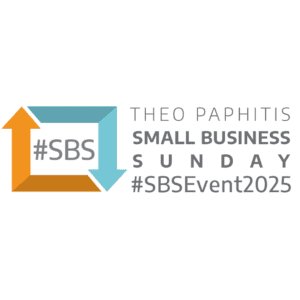Years ago, when I first started in this industry, we did not have keywords or key phrases. In fact, in the early days of web design for me (circa 1996) we had very little to guide us at all.
The first website I designed and developed was in the (then) popular framework called CompuServe. Some of the more mature #SBS Winners may recall this! It was a dial up system which you paid for on subscription. In that time there was no Google. We were pretty much working blind. There was Microsoft's MSN Live, but this never really cut it as a search engine.
So, when Google was born in Late 1997, it decided (after around 18 months) to introduce some standards. These included the input of 'key' or important words into the source code of the website pages. This would identify the core aspects of the subject of the page to the engines – the viewer would be none the wiser, typically. Some more spurious web designers and web developers decided to try to outwit the engine and put these key-words in repetitive format throughout the web pages for the viewer to see, with no relevant link to a page of content. This was ultimately frowned upon by Google. This was termed 'keyword stuffing'.
In 2009, Google and the other 2 search engines announced that key words in the source code (Meta) would not be included in the search engine algorithm. In 2011, Google went a step further and announced that if Meta was visible in the source code, it would likely consider the site URL as trying to spam the engine.
Where are we now?
Key phrases
We know that Google is probably not the best search engine for the delivery of a search result. If you run parallel tests on 'long-tail' or lengthy phrases you will note a significant difference in the results. Google would argue that they have more, but actually we have seen that Yahoo and now Bing are more precise at delivering results which are more accurate to the search. Of course they are all improving their results, but actually Google has the edge as you do not 'Yahoo' something do you?!
What has come out of this is that Google has increased its reliance upon longer phrases for search. Typically, we find that one or two word key phrase/word searches are those which are made for reference or education purposes. We now cannot actually optimise efficiently on one word searches.
Longer tail (length) phrases appear to be more focused and more likely to deliver for the website owner in more cases. Of course, what this may mean is a reduction in search numbers but ultimately could lead to a better return from the search to your site.
The key phrases that you choose are the most important factors that decide whether you succeed or not when ranking your website.
► A number 1 listing on Google can be totally pointless if it is for the wrong key phrase, of course.
If you target the wrong key phrase, you'll waste a lot of time, energy and often money.
Think twice before you start.
Many webmasters think that they already know the best key phrases for their websites. If they haven't done some research, they are usually wrong. There are several reasons for that:
- You know your business much better than anybody else. You know the special terms that are used in your branch/office and you know what you should search for when you're looking for products or services like yours.
- Your customers don't know as much as you. They don't know your terminology and they might use totally different keywords. For example, people might search for the keyword "back pain" while your professional pride tells you that you should use the word "osteopath services." If you don't use the words that your customers use, your website won't be found.
- Have you considered the intention of the searcher? Just because a key phrases is used very often on search engines it doesn't mean that you'll get many customers. People who find your website through a special key phrase might not be interested in purchasing.
It's very important that you take some time to find the best key phrase for your website. The time and efforts that you invest in finding the right keywords will pay back in no time.
Tips to do this:
1. There are many tools out there to carry this out. Google carries one in its AdWords console. and several others include: Raven, SEMRush, SEOBook, IBP, and Web CEO.
2. Input your anticipated search phrase and when the results are delivered head to the base of the page and check relevant searches. Often these are the most popular.
3. Use website server stats or Google Analytics to shape your phrases – this will require time and experimentation to see what works.
4. Common sense – not to be underestimated. Think what you would put in to the engine search if you were looking for your kind of product and service. Test it. See if it delivers for you.
5. Think 'long-tail' . Look at phrases beginning with "How do I…' , 'Where do I…' Again, experiment with these open question type search phrases.
Overall
Key phrases and rankings are not the panacea to online success. Delivery of business enquiry or sales is (typically) your ultimate aim. Understand that nothing is perfect online. Professionally, we work on averages not actuals. We also do not work solely on phrases to gain traction. Delivery of URL improvement and boost is what we look for now. Other aspects of digital marketing or SEO may come into play in that case, of course.
I hope this helps you in your quest for the right key phrases for your website.
Chris Wheeler. Managing Director. Metalfrog Studios Limited


